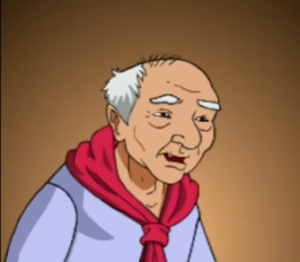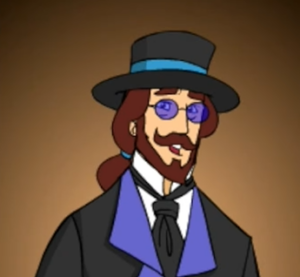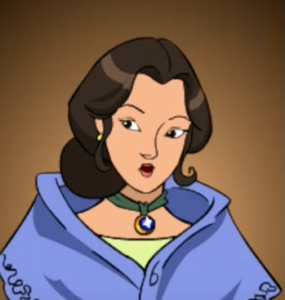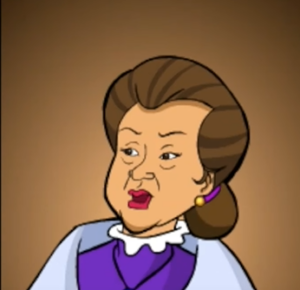Name: Millon
Sex: M
Race: Spanish
Occupation: Professor, Dominican priest
Aliases:
Affiliations: College of San Juan de Letran, University of Santo Tomas
Background
Padre Millon started out as a young Dominican professor teaching in the College of San Juan de Letran. He was widely respected because he was good at dialects and philosophy, which caused him to be liked by elders and envied by younger people. However, he believed too much in Jesuit ideals and became prohibited from saying Mass.
Padre Millon transferred to University of Santo Tomas and has been teaching for three years. Throughout his career, he has taught geography (even though he didn’t believe that the earth was round) and canon law. By teaching canon law he learned the “language of the streets”, allowing him to communicate better with students. It is his first year teaching physics and chemistry and he is already seen as an expert by many. He has extensive knowledge in physics but does not know much about chemistry. He is considered the first to not believe in the chemistry of Saint Thomas and does not consider water a mixture.
Story
Chapter 12: Padre Millon is not named in this chapter but he is introduced at the end of it, when Placido Penitente arrives late for class. He is doing the roll call and is at Q already when Placido Penitente arrives, so he looks at Placido Penitente and shakes his head.
Chapter 13: The chapter takes place during Padre Millon’s Physics class in UST. He is doing a recitation and scolds a fat student for yawning and asks him the following:
- To recite the lesson on mirrors.
- What kind of mirror camagong or marble is classified as.
The fat student can’t answer the question but Juanito Pelaez jokes that Camagong is a mirror of wood. Padre Millon laughs with the class and teases Juanito Pelaez.
Padre Millon asks the fat student the following:
- If the mirror refers to the material surface or the substance placed on the surface that reflects images.
- If he agrees that the surface is the mirror because what is on top cannot be called a ‘surface’ if it’s not actually on top.
- What happens if you remove quicksilver from a mirror and put bibingka on it instead?
The fat student concedes. Juanito Pelaez comments again so Padre Millon asks him:
- Is the polished surface the mirror?
- Does the object behind have an influence over what is in front?
Juanito Pelaez answers no, confused. He steps on Placido Penitente’s foot, so Padre Millon notices Placido Penitente and asks him:
- How do you explain that glass mirrors are different from metallic mirrors when glass mirrors is made up of tin and mercury, which are metals?
Placido Penitente keeps saying “so the book says” and Padre Millon scolds him for not studying yet trying to coach Juanito Pelaez. Padre Millon makes fun of Placido Penitente’s name and orders him to recite the lesson. Placido Penitente makes mistakes and Padre Millon finds his name on the roll call to mark it, but notices Placido Penitente’s absences.
Placido Penitente argues that Padre Millon cannot place a rayita on his name for getting the lesson wrong, while marking him absent on the same time. Padre Millon insults him again and Placido Penitente has an outburst, telling Padre Millon he cannot treat him that way. Placido Penitente leaves the class.
Padre Millon is shocked and starts ranting about students like Placido Penitente, who cannot pass their classes but want to start an Academy for Spanish. He spends the rest of the lesson complaining and the students are happy when the class finally ends, but it is noted that the students now feel hatred instead of enthusiasm for their lessons because of Padre Millon’s rant.
Physical Description
Padre Millon is not physically described in the book.
Personality
Padre Millon is a strict professor who easily punishes those in class who don’t follow his rules. He demands that everyone recite the lesson word for word from the book, even though he himself tends to reject knowledge he has been taught, claiming that he does not like science even though he teaches science subjects. He also refuses to believe that the earth being round and water being a mixture.
Padre Millon is also moody and prone to showing favoritism: in Chapter 13, he goes from joking with Juanito Pelaez to insulting Placido Penitente, to getting mad at the whole class in one session. He shows dislike for students who do not conform. This is seen when he targets Placido Penitente just because he wears nice boots and gets upset when Placido Penitente talks back to him
Padre Millon talks like he is “from the streets” and often jokes with his students. However, his lack of respect for them becomes obvious when he purposely humiliates his students by insulting them in front of the entire class. He does not realize that ranting for the rest of the period makes the rest of the class hate him rather than agree with him.
Skills
Philosophy
“Is it that not being actually present necessarily implies knowledge? What do you have to say to me, philosophaster?” (Padre Millon to Placido Penitente, Chapter 13)
Padre Millon believes his strength lays “in the philosophical, purely speculative” and will often discuss philosophical questions even while teaching a class such as Physics. He confuses students during recitation by asking them a philosophical question even though they’re supposed to recite from the book word for word. When Placido Penitente tries to argue logic with him, he gets angry and debates back, accusing Placido Penitente of trying to be a philosopher.
Relationships
See Relationships of Padre Millon
Beliefs
On Hispanization
“We would like all of you to know Spanish, and to pronounce it well, so that you do not ruin your eardrums with your twists and your ‘Ps’, but first duty, and then, satisfaction; fulfill your studies first and then learn Spanish and turn to pen-pushers if you so desire…” (Padre Millon, Chapter 13)
Padre Millon is one of the few priests and professors to not be completely against Indios learning Spanish. However, he is against the idea of the Academy for Spanish, because he believes that students should finish their schoolwork first before learning the language.






